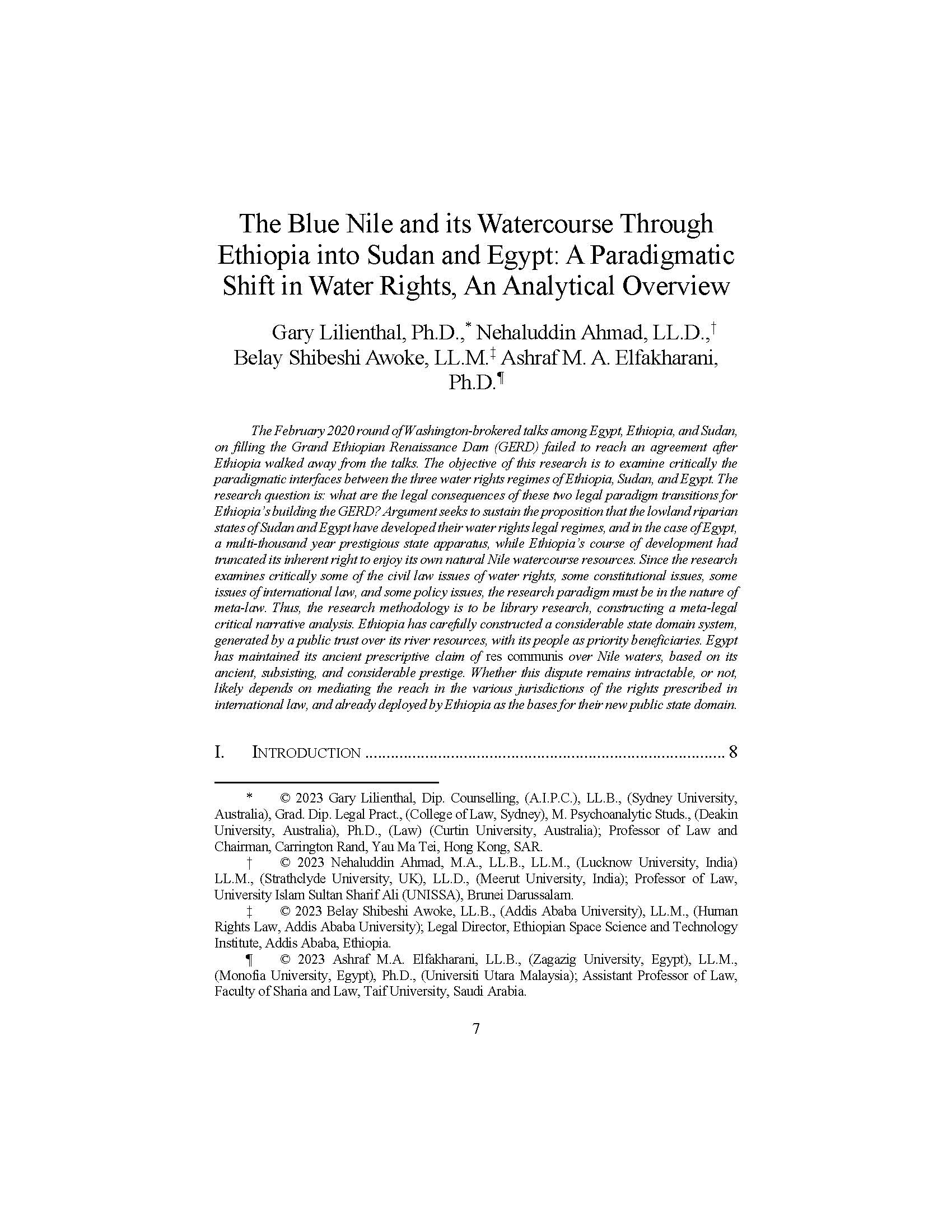The Blue Nile and its Watercourse Through Ethiopia into Sudan and Egypt: A Paradigmatic Shift in Water Rights, An Analytical Overview
Abstract
The February 2020 round of Washington-brokered talks among Egypt, Ethiopia, and Sudan, on filling the Grand Ethiopian Renaissance Dam (GERD) failed to reach an agreement after Ethiopia walked away from the talks. The objective of this research is to examine critically the paradigmatic interfaces between the three water rights regimes of Ethiopia, Sudan, and Egypt. The research question is: what are the legal consequences of these two legal paradigm transitions for Ethiopia’s building the GERD? Argument seeks to sustain the proposition that the lowland riparian states of Sudan and Egypt have developed their water rights legal regimes, and in the case of Egypt, a multi-thousand year prestigious state apparatus, while Ethiopia’s course of development had truncated its inherent right to enjoy its own natural Nile watercourse resources. Since the research examines critically some of the civil law issues of water rights, some constitutional issues, some issues of international law, and some policy issues, the research paradigm must be in the nature of meta-law. Thus, the research methodology is to be library research, constructing a meta-legal critical narrative analysis. Ethiopia has carefully constructed a considerable state domain system, generated by a public trust over its river resources, with its people as priority beneficiaries. Egypt has maintained its ancient prescriptive claim of res communis over Nile waters, based on its ancient, subsisting, and considerable prestige. Whether this dispute remains intractable, or not, likely depends on mediating the reach in the various jurisdictions of the rights prescribed in international law, and already deployed by Ethiopia as the bases for their new public state domain.
